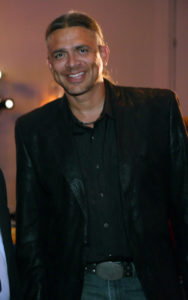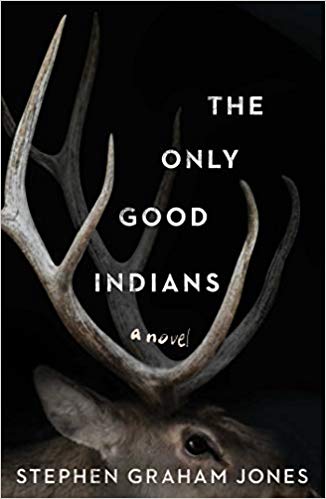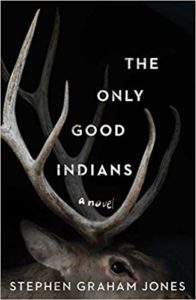Cross-posted from the World Fantasy Convention blog
Review by Ginny Smith
Four young men from the Blackfeet reservation head out to hunt elk. Their search is unsuccessful until they enter a restricted area where they find a small herd in a ravine with no avenue for escape. They open fire. The resulting massacre does provide meat for their families and others on the reservation—but at a price that none of them expected, a price higher than any of them can afford to pay. And the entity they wronged will wait years to extract her revenge if she has to.
Stephen Graham Jones writes from the rich culture of his Native American heritage, and he does so in a style that both captivated me and drew me into a dark, scary place. As the story unfolded I was fascinated and horrified in equal measures. It’s that eerie kind of creepy where the hair on your arm prickles and you get out of bed to make sure all the windows in the house are locked.
These four men attempt to put the memory of the slaughter behind them, each in their own way. They try to ignore it, to tuck it into the recesses of their minds where the darkest of nightmares are banished. They try to run from it. But there are prices to be paid, and the horror of that night stalks each of them.
 Jones writes with masterful force, and his characterization is gripping. I heard the men’s thoughts, lived their lives, felt their fears. By the time he introduced my favorite character—Denorah, the daughter of one of the ill-fated hunters—I felt like I knew the world she lived in. As I slipped into her character, I felt like I could actually play a great game of basketball. (There’s a teaser for you!)
Jones writes with masterful force, and his characterization is gripping. I heard the men’s thoughts, lived their lives, felt their fears. By the time he introduced my favorite character—Denorah, the daughter of one of the ill-fated hunters—I felt like I knew the world she lived in. As I slipped into her character, I felt like I could actually play a great game of basketball. (There’s a teaser for you!)
One thing I found compelling (in a terrible way) is the authenticity with which Jones let me feel the
kind of prejudice that American Indians experience on a daily basis. Don’t misunderstand – this is not a story about prejudice. The bigotry the characters encounter is an element that has formed their personalities because it is part of their lives. Ricky is hired to work in the cold because, as his new boss says, “everybody knows Indians are cold-resistant.” Ricky just nods and keeps quiet while thinking, “…you don’t get cold-resistant because your jackets suck, and you just stop complaining about it after a while because complaining doesn’t make you any warmer.” Then Lewis, another of the men from that fateful hunt, is thrown together with a female coworker by the men they work with because “…him and Shaney are the only two Indians at this station…” She’s Crow and he’s Blackfeet, but to everyone on the crew they’re both Indians so naturally they belong together, right? The injustice is particularly painful when teenager Denorah steels herself before her basketball games for the jeers of the crowd chanting Indians go home! Indians go home!
This book put me in the shoes of people who aren’t like me and did it with finesse. The characters are realistic people who did something in their youth that they’re not proud of. I can relate to that. It’s a story of revenge, but also of redemption. Of fear and of hope. Of misdeed and of justice.
The Only Good Indians will live with me for a long time. At night I’ll draw my curtains tight across my locked windows so nobody can see in, or maybe so I can’t look out and catch a glimpse of a woman with a head that is not her own. (Oooh, another teaser!) But what I’ll remember the most are the people I lived with for a while whose lives changed me in ways I never expected and will always appreciate.


